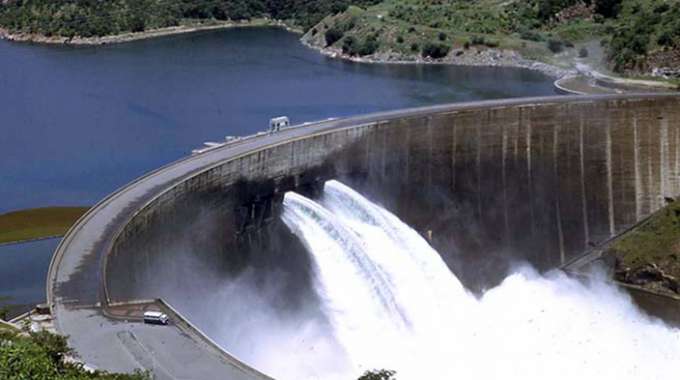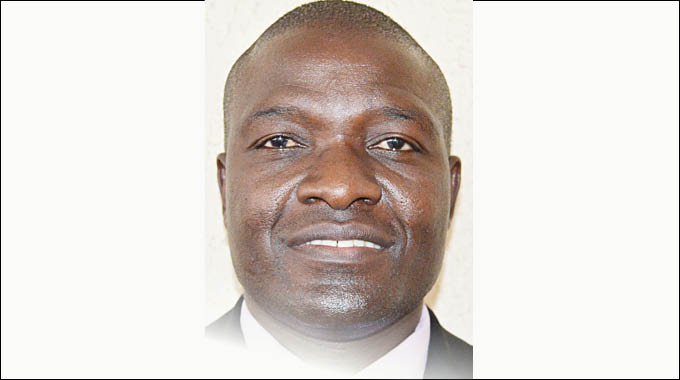New story emerges out of Binga

Mashudu Netsianda, Senior Reporter
TUCKED on the south-eastern shores of Lake Kariba in Matabeleland North province, Binga has over the years been perceived as one of the most remote and underdeveloped districts in the country with locals being portrayed as poor and uneducated.
It was built to accommodate the BaTonga people whose homelands had been flooded in the late 1950s when Kariba Dam wall was constructed.
While the most common connotations about Binga are on its remoteness, the abundant fish and the tobacco-smoking Tonga women, little is said about its hidden treasures in mining, tourism and wildlife resources.
There is, however, a new story emerging out of Binga. It is a story of economic growth, tourism and mining potential.
A sleeping tourism giant, Binga is an untapped tourism gem which boasts one of the best natural tourist attractions in the country ready to be exploited.
Though mostly untouched by the outside world, Binga has remarkable tourist attractions including the Zambezi River viewing, the Chibwatatata Hot Springs, Chijalile Pass, a crocodile farm, swamps in the Simatelele Ward, stunning gorges and natural rock outcrops.
Binga is also home to the only sand beach in Zimbabwe, lying undiscovered on the shores of Lake Kariba. If you don’t believe this, you better go and see for yourself.
One thing that strikes a first-time visitor to Binga is the hospitality that the BaTonga people exude at any given time, the pride in their language and untainted unique culture.
It is accessible via a tarred road which turns off the main Bulawayo-Victoria Falls road near Dete/Hwange. There also is a serviceable tarred airstrip for small chartered aircrafts available for your use.
Activities that you can undertake include sunset or sunrise boat cruises on the enchanting deep waters of the scenic Zambezi River, game drives, crocodile sight-seeing and fishing.
If you are looking to stay for a while, there are a wide range of lakeside villas and small lodges as well as campsites including Kulizwe and Njiri Lodges, Masumu River Lodge, Chilla Cottages and Binga Rest Camp whose facilities offer a range of services from self-catering in the chalets to a five-star experience, inclusive of both African and western cuisine.
Binga Rural District Council chief executive officer, Mr Joshua Muzamba said by virtue of its location, the district has lately recorded a significant increase in tourist arrivals with most tourists showing interest in boat cruises on the Zambezi River.
“In terms of business opportunities, the district has potential in tourism as we are at a halfway point between Kariba and Victoria Falls, which offers tourists a chance to pass through and enjoy the natural beauty of Binga. We have lately witnessed an increased traffic of tourists who are actually coming from Victoria Falls,” he said.
“There are many positives about Binga, probably the most significant being that we lie in a great wildlife corridor. When one is driving from Kariba to Victoria Falls there is the Chete and Chizarira Wildlife Safaris on either side.”
Binga is also a component of the Kavango–Zambezi Transfrontier Conservation Area (KAZA), a vast safari land jointly owned by Angola, Botswana, Namibia, Zambia and Zimbabwe.
It is situated in a region of Southern Africa where the international borders of five countries converge. It includes a major part of the Upper Zambezi River and Okavango basins and Delta, the Caprivi Strip of Namibia, the southeastern part of Angola and south-western Zambia, the northern wildlands of Botswana and western Zimbabwe.
“We also have wildlife resources in the district and we have five concessions for safari operations. We have also established two concessions where we are trying to develop and preserve at an intensive scale wildlife resources both in terms of flora and fauna,” Mr Muzamba said.
Culturally, the district has continued to maintain its traditional vestiges, especially the Tonga art and craft centre at Binga Centre, together with the museum, a must visit.
Mr Muzamba, however, admitted that the district’s full tourism potential had not been fully realised because of poor marketing strategies and failure by local tourism players to package their products and services.
Mr Muzamba said Binga has significant coal deposits at Lusulu enough to spur an investment as well as a potential for gold and copper exploration.
He said because of the abundant water on the Zambezi River coupled with vast tracts of arable land, Binga has a potential to be turned into a greenbelt.
“The district has a potential for the establishment of irrigation schemes because of a fresh water body in the form of Zambezi River including underground water. There is a potential for Binga to also grow citrus fruits since we have vast tracts of land which has not yet been inhabited. We therefore feel that if this land is exploited it can contribute to the development of Binga as well as add up to the GDP of the district,” he said.
Poor road and communication networks are some of the impediments to Binga’s economic growth.
The recent floods witnessed last month in Nsenga area of the district left a trail of destruction and a bridge linking Siabuwa and Binga Centre was extensively damaged.
Despite poor roads, vegetation is still in its best condition, a clear indication that there is a culture among the locals to preserve the environment.
Binga has a growing road network because of rising settlements resulting in an increase in demand for health, education and other social institutions in the district.
The council only relies on one grader to service the entire district.
“We have the main Binga-Siabuwa road and it is generally not trafficable. We are therefore appealing to the Government to upgrade it because as local authority we only do feeder roads, but for the economic movement of goods and services we will need trunk roads to be established,” said Mr Muzamba.
The other opportunity that awaits Binga is the granting of border status by the Government and the facility is expected to be opened soon.
“We have been pushing for the opening of the border post because there is a significant number of people who go Zambia to see their relatives and buying goods from either of the two countries hence if a border post is set up it will assist. There is progress so far and three houses have been put up and efforts are on the ground and it will be opened soon,” said Mr Muzamba.
“The border post is necessary in that it will help us as a local authority in terms of growing our economy because we will have increased movement of people between Zimbabwe and Zambia through Binga. Binga and Hwange are part of KAZA so in terms of movement there will be a lot of economic activities which will benefit our people.”
Binga prides itself as having probably some of the deepest channels of the Zambezi River where the fishery industry is thriving. There is commercial Kapenta fish, bream, tilapia and tiger fish production in the district.
Mr Bernard Munsaka, the chairperson of Binga Fisheries, an umbrella body representing 17 fishing co-operatives, has however, lamented exorbitant licence fees by ZimParks, saying they were pushing them out of business.
“Last month the ZimParks fishing permits were increased from $1 200 to a staggering 6 000 per quarter, which translates to $24 000 per year and we also have to pay council fees and Zimra taxes. We urge Government to intervene and address some of these issues as a matter of urgent because people in Binga rely on fishing,” he said.
Some of the challenges faced by fishing cooperatives is fuel shortages and there is only one service station at Binga Centre. Rigs consume an average of 300 litres of diesel per month.
“This is an area of great concern to us since fishing is what makes Binga tick economically. The high fees and fuel shortages are an impediment to the economic growth of this district. We are struggling to operate effectively and generate more revenue and contribute more to the national economy,” said Mr Munsaka.
The fishing season runs from March to August while the period between September and February is for breeding.
Mr Munsaka said challenges they were facing were poachers from Zambia who invade breeding areas, which are prohibited zones.
Crocodile farming is another lucrative business venture in Binga. The Binga Crocodile Farm is a private enterprise that has up to 40 000 crocodiles that are being bred commercially. It offers guided tours of the farm so that tourists can see live crocodiles.
“The BaTonga are generally friendly people and you will be shocked that whenever they meet any stranger in the street, they will greet you with a smile. That is how they are brought up and this is pronounced everywhere you go in Binga,” said Ms Maria Muleya, a flea market vendor operating at Binga Centre. Binga is peaceful, ideal for your relaxation while you take in the amazing scenery. – @mashnets










Comments